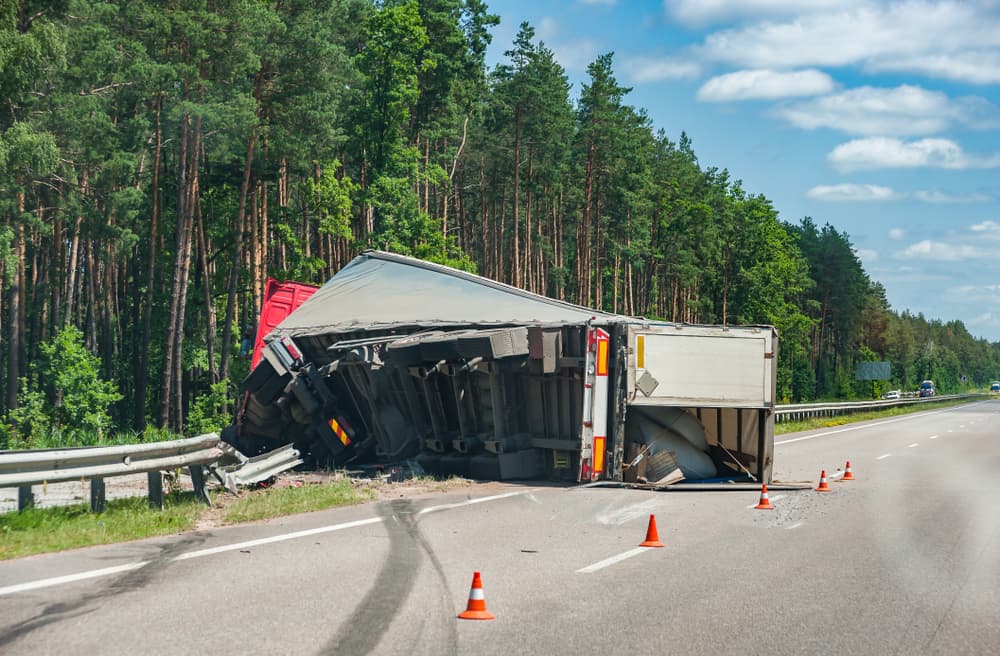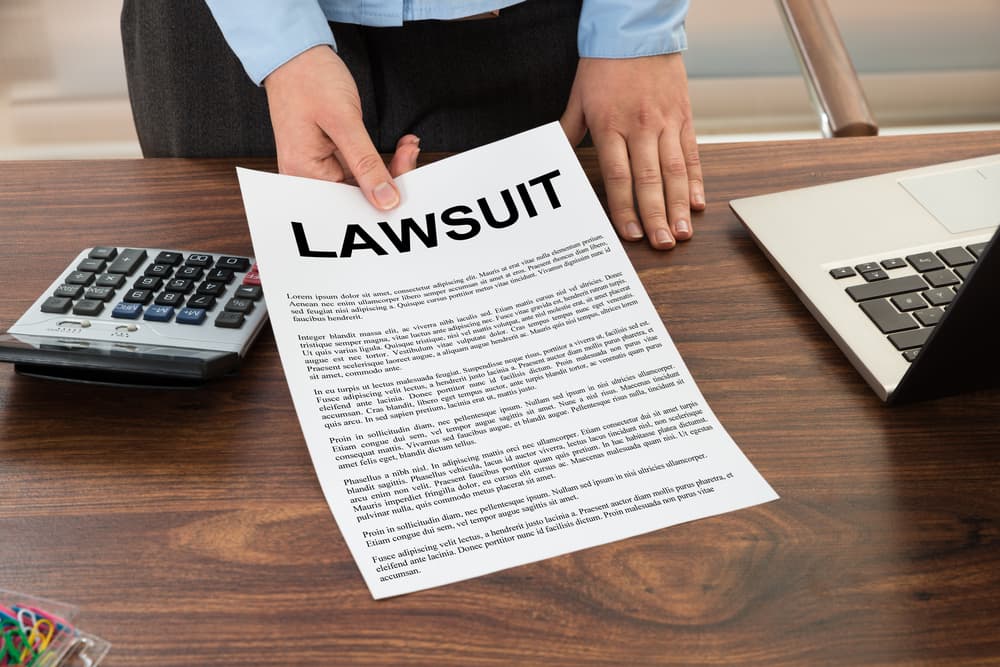Wausau Truck Accident Attorney
Nearly every product you purchase here in Wausau was brought in on a commercial truck. In Wisconsin and beyond, much of the U.S. economy is dependent on commercial truckers to transport products and supplies to areas where they are needed. Unfortunately, this task is not without risk. Nearly 5,000 fatal accidents involving a commercial truck are reported every year, and more than 100,000 people are injured in truck-related accidents.
If you were injured in an accident involving a commercial truck, we don’t need to tell you how physically, financially, and emotionally devastating this kind of accident can be. What we can tell you, however, is that there is a legal process in Wisconsin in which you can hold the individual who caused your accident responsible for your injuries, and obtain the compensation you need to cover the expenses and changes to your life that your injury has caused. A Wausau truck accident lawyer from Nicolet Law Accident & Injury Lawyers can provide more information on this process.
About Nicolet Law

Established over 13 years ago, Nicolet Law Accident & Injury Lawyers represents individuals facing a wide variety of legal issues throughout Wisconsin and Minnesota. We bring over decades of combined experience to every case that we handle, and we have the resources and know-how to tackle even the most complex truck accident cases.
We’ve won numerous awards for providing high-quality legal services, and we accept truck accident cases on a contingency basis, which means that we only get paid if we successfully recover compensation on your behalf. At Nicolet Law Firm, we know that every case is unique, and we strive to provide compassionate legal representation to all of our clients.
We've Recovered Millions for Our Clients
At Nicolet Law, we’ve represented over 3,000 individuals and secured more than $34 million in compensation for our clients. While we cannot guarantee a favorable result in your case, we can point to our past successes as an indication of our dedication and understanding of the law.
Consider the following results that we’ve secured for past clients:
- $450,000 for a client injured in a trucking accident;
- $450,000 for a man injured in a semi-truck accident near Eau Claire, Wisconsin; and
- $200,000 for a Wisconsin client who was rear-ended by a semi-truck on I-94.
Injured in Wausau? Get Nicolet.
Major Accident Locations in Wausau
Based on a report published by the Wausau Metropolitan Planning Organization, the following are some of the most congested and dangerous intersections in Wausau:
- Grand Avenue (Business Highway 51) south of Thomas Street to Kent Street
- Bridge Street between 1st Street and 1st Avenue
- County Road WW between N 32nd Avenue and Highway 51
The same report also identified a few isolated locations of particular concern due to truck traffic on the local street network:
- Wausau Industrial Park connection from STH 29 to Stewart Avenue at 72nd Avenue
- Camp Phillips Road connection to the Schofield and Weston Industrial park off of Ross Avenue
- The area surrounding the Weston Elementary School
- Trucks using Thomas Street from the 3M Corporation and Kolbe & Kolbe Corp.
The Dangers of Commercial Trucks
Weighing 80,000 pounds when fully loaded, spanning a length of 70 to 80 feet, and standing over 13 feet tall, a commercial truck—also known as a semi-truck, tractor-trailer, big rig, or 18-wheeler—is massive.
The truck’s size causes many hazards, including:
- Wide turns: The average lane width of U.S. roadways is 12 feet, and the road width is 24 feet. Semi-trucks have a turning radius of around 55 feet. This means that the driver is required to swing the truck into other travel lanes to complete a turn. This poses a hazard to drivers in vehicles in adjacent travel lanes, as well as those who are attempting to turn alongside the truck.
- Blind spots: While every vehicle has a blind spot—that is, an area around the vehicle in which the driver cannot see with the rear or side-view mirrors—trucks have significant blind spots on all four sides, with the biggest blind spot occurring along the entire span of the passenger side and extending at least one travel lane. Motorists are urged to avoid tailgating or entering a travel lane too close to the front of the truck, as well as avoiding lingering too long on either side of the truck. A good rule of thumb to determine whether you’re in the truck driver’s blind spot is to look for his or her image in the truck’s side-view mirror. If you cannot see the truck driver in the side view mirror, chances are that he or she cannot see you either. The blind spot is also a hazard to pedestrians and bicyclists when the truck is backing up, as the driver can’t see someone who enters into his or her path.
- Increased stopping distance: It takes some distance for any vehicle to stop once the driver has perceived a danger ahead and has depressed the brakes. The larger the vehicle is, the longer it takes the brakes to pull the weight to a complete stop. Trucks require about 40 percent more distance to come to a stop than the average passenger car does, and this distance can increase even further on wet or slippery roads or when the vehicle is traveling at a high rate of speed.
- A high center of gravity: With a vehicle that is so tall, the center of gravity is higher than it would be in a passenger car. This makes the truck more prone to rolling over if the driver attempts emergency steering maneuvers or attempts to negotiate a sharp corner at speed.
- Jack-knife: The term “jack-knife” describes a condition in which the trailer of the truck makes contact with the tractor. A semi-truck is not all one unit, but rather a trailer that is attached to a cab (known as the tractor). If the trailer exceeds a 45-degree angle from the cab, the truck will jack-knife, which occurs when the trailer begins moving faster than the cab. This is most likely to occur on icy roads, but can even occur on dry roads if the trailer is empty and the driver brakes hard.
How Truck Accidents are Caused in Wausau

There are hundreds of actions that can lead to a motor vehicle accident.
Here are some of the more common causes of accidents involving commercial trucks:
- Inadequate training: Truck drivers are required to undergo training on the operation of the vehicle to obtain their commercial driver’s license. While this training is crucial, there often is not adequate training on the day-to-day hazards the new driver faces on the job. Unfortunately, given the increase in transportation needs and the decrease in licensed truck drivers, many new drivers are forced to hit the road alone before having the opportunity to mentor under a more experienced driver.
- Lack of maintenance on the vehicle: Trucking companies and independent drivers are federally required to systematically repair, inspect, and maintain their vehicles and to ensure that all parts and accessories used on the vehicle are in working order at all times. However, while the requirement is in place, the agency tasked with monitoring the transport industry in the U.S. is not constantly checking to see if it has been done. If your accident was caused by a mechanical failure on a commercial truck, you can rest assured that your attorney will be checking to see if it has been done.
- Speeding: Driving too fast for the conditions of the road is one of the most common causes of truck-involved accidents. Speeding not only reduces the time that a person has to perceive a hazard and respond to it by pressing the brakes, but also increases the distance required to bring the vehicle to a safe stop. As previously mentioned, even at slower speeds, a semi-truck requires 40 percent more space to come to a stop. This amount increases as the speed of the vehicle increases.
- Fatigued driving: Despite federal hours-of-service restrictions that control how long a trucker may drive before taking a break, many commercial drivers still drive while fatigued due to sleep apnea, insomnia, and other factors.
- Tailgating: Tailgating is dangerous behavior for any driver, as it can create a situation where the driver does not have enough space to come to a stop if the lead vehicle suddenly brakes. This is particularly true in big trucks that require a greater distance to come to a safe stop. While a common rule for truck drivers is to leave at least six trailer lengths of space between themselves and the vehicle in front of them, this is not always possible in congested areas. They still are required to leave as much space as possible to ensure adequate stopping distance.
- Distracted driving: Driving distractions are a major cause of collision for all vehicle types. Common examples of driving distractions include texting and other cell phone use, eating or drinking, adjusting the GPS or other vehicle controls, or external distractions such as work zones, previous accident scenes, and other vehicles on the roadway.
- Defective vehicle parts: Manufacturers or distributors of auto parts have a responsibility to ensure that those parts are safe for use on U.S. roadways when used as intended. If your accident was the result of defective truck parts, your attorney will look at the manufacturer or distributor of the defective parts for potential liability.
- Inclement weather: Icy or slippery roads increase the risk of a commercial tractor-trailer going into a jack-knife, sweeping up smaller vehicles nearby. Beyond that, inclement weather can create more difficulty for the truck driver to maneuver the vehicle and come to a safe stop.
Frequently Asked Questions About Obtaining Compensation After a Wausau Truck Accident

Need more information about pursuing compensation for your truck accident injuries? Here are the answers to some of the questions our Wausau clients most frequently ask about truck accidents.
What is a Wausau truck injury lawsuit, and what do I have to prove?

A truck injury lawsuit is a legal claim filed in civil court. This is how you pursue compensation against the at-fault party in your truck accident case. To obtain that compensation, you must prove who is legally responsible (liable) for the accident that caused your injuries.
To prove liability, you must establish:
- The at-fault party owed you a duty of care. The duty of care refers to the actions a reasonable person would take in similar circumstances.
- There was a breach in the duty of care. The breach refers to the actions that the at-fault party took that were contrary to the duty of care that was owed.
- The breach resulted in an accident that caused your injuries and subsequent expenses and quality-of-life impacts.
In addition to proving liability, you will be asked to show the expenses and impacts you have incurred.
Examples of the types of expenses and impacts individuals seek compensation for in a truck accident case include:
- Medical expenses
- Lost wages
- Loss of future earning capacity
- Repair or replacement of your car that was damaged in the accident
- Physical pain and suffering
- Emotional distress
- Loss of the enjoyment of life
Is there a deadline for filing my Wausau truck accident lawsuit?
The statute of limitations is the deadline that a state sets on the ability of an accident victim to file a legal claim in pursuit of damages. In Wisconsin, the statute of limitations for truck accident cases is three years from the date on which the accident occurred.
What are the most common sources of liability in a Wausau truck accident case?
Several individuals or entities can have liability for a truck accident, including:
- The truck driver
- The company that the truck driver is employed by.
- The shipper who contracted with the trucking company for transport services.
- Other users of the roadway, including motorists, bicyclists, or pedestrians.
- The manufacturer or distributor of defective auto parts.
- The company or individual tasked with performing maintenance on the truck.
My loved one died in a Wausau truck accident. Can I pursue compensation?
If the accident was caused by someone else’s reckless or careless actions, yes. The process to pursue compensation after the death of a loved one in a truck accident is a wrongful death lawsuit. A personal representative of the deceased’s estate or the deceased’s family members (such as spouse, parents, or children) may file this legal claim in civil court to seek compensation for the death.
Some of the expenses you can obtain compensation for in this type of claim include:
- Medical expenses for the treatment of the deceased’s final injury
- Funeral and burial or cremation expenses
- Lost wages and benefits
- Loss of society and companionship
I can’t afford an attorney. Should I just file my Wausau truck accident claim on my own?
Your ability to obtain legal services and guidance to assist you in obtaining the compensation that you are legally entitled to receive should not be controlled by whether you can afford to hire an attorney. A good Wausau truck accident injury attorney understands this, and also understands how complex truck accident cases can be for someone who is not trained in the law.
Because of this, most of us offer two special services aimed at ensuring that anyone who needs a personal injury lawyer has access to one:
- A free case evaluation, which provides you time to get answers to your legal questions and to learn more about your options.
- A contingent-fee payment arrangement, which means you do not owe us any attorney’s fees for our services until there is a successful outcome to your case.
Let the experienced Wausau truck accident attorneys at Nicolet Law help you understand the legal process of pursuing compensation after a truck accident. Contact us online for a free case evaluation or by calling (715) 716-5092.
Wausau Office
408 3rd Street
Suite 303
Wausau, WI 54403
Phone: (715) 716-5092